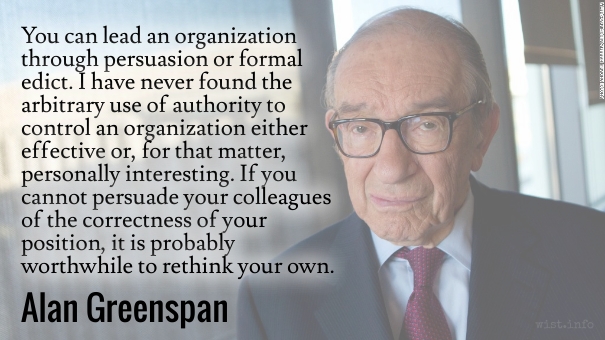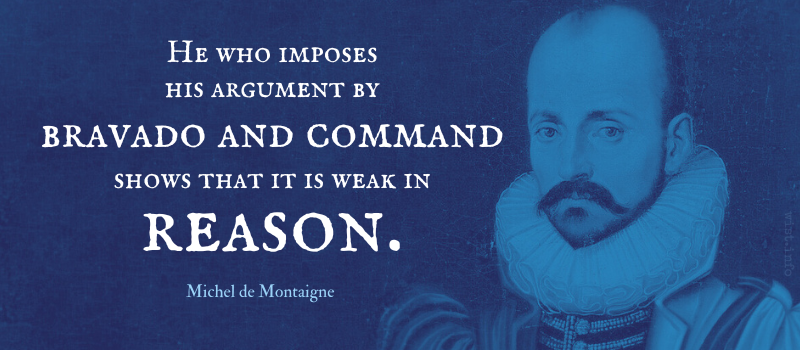Nothing is meaner, and more typical of the mob, than to speak in glowing terms of those whom one held in little account before their rise to eminence.
[Il n’y a rien de plus bas, et qui convienne mieux au peuple, que de parler en des termes magnifiques de ceux mêmes dont l’on pensait très modestement avant leur élévation.]
Jean de La Bruyère (1645-1696) French essayist, moralist
The Characters [Les Caractères], ch. 12 “Of Opinions [Des Jugements],” § 5 (12.5) (1688) [tr. Stewart (1970)]
(Source)
(Source (French)). Alternate translations:
There's nothing so mean, and so like the Mob, as to talk much in the praise of those very persons, of whom we thought indifferently before their promotion.
[Bullord ed. (1696)]
There is nothing so mean and so like the Vulgar, as to talk much in praise of those very Persons, of whom we thought indifferently before their promotion.
[Curll ed. (1713)]
There's nothing so mean, and so truly vulgar, as to sound the Praise of those very Persons, of whom we thought but indifferently before their Promotion.
[Browne ed. (1752)]
There is nothing so mean and so truly vulgar as extravagantly to praise those very persons of whom we had but very indifferent opinions before their promotion.
[tr. Van Laun (1885)]
Quotations about:
position
Note not all quotations have been tagged, so Search may find additional quotes on this topic.
The vulgar ignorance of stubborn people makes them prefer contention to truth and utility. Prudent people are on the side of reason, not passion, whether because they foresaw it from the first, or because they improved their position later.
[Vulgaridad de temáticos, no reparar en la verdad, por contradecir, ni en la utilidad, por litigar. El atento siempre está de parte de la razón, no de la pasión, o anticipándose antes o mejorándose después.]
Baltasar Gracián y Morales (1601-1658) Spanish Jesuit priest, writer, philosopher
The Art of Worldly Wisdom [Oráculo Manual y Arte de Prudencia], § 142 (1647) [tr. Maurer (1992)]
(Source)
(Source (Spanish)). Alternate translations:
It is the custome of the head strong to regard neither truth in contradicting; nor profit in disputing. A wise man hath always reason on his side, and never falls into passion. He either prevents or retreats.
[Flesher ed. (1685)]
'Tis the common failing of the obstinate that they lose the true by contradicting it, and the useful by quarrelling with it. The sage never places himself on the side of passion but espouses the cause of right, either discovering it first or improving it later.
[tr. Jacobs (1892)]
The vulgarity of these clowns, that they observe not the truth, because they lie, nor yet their own interest, because on the wrong side. A heedful man stands always on the side of reason, and never that of passion, either because he foresaw it from the first, or found it better afterwards.
[tr. Fischer (1937)]
Never from Obstinacy take the Wrong Side because your Opponent has anticipated you in taking the Right One.
[Nunca por tema seguir el peor partido, porque el contrario se adelantó y escogió el mejor.]Baltasar Gracián y Morales (1601-1658) Spanish Jesuit priest, writer, philosopher
The Art of Worldly Wisdom [Oráculo Manual y Arte de Prudencia], § 142 (1647) [tr. Jacobs (1892)]
(Source)
(Source (Spanish)). Alternate translations:
Never to espouse a bad party in spight to an Adversary, who hath taken the better.
[Flesher ed. (1685)]
Never out of stubbornness hold to the wrong side, just because your adversary anticipated you, and chose the right.
[tr. Fischer (1937)]
Don’t defend the wrong side out of stubbornness, just because your opponent happened to arrive first and choose the right side.
[tr. Maurer (1992)]
Owners of dogs will have noticed that, if you provide them with food and water and shelter and affection, they will think you are god. Whereas owners of cats are compelled to realize that, if you provide them with food and water and shelter and affection, they draw the conclusion that they are god.
Christopher Hitchens (1949-2011) English intellectual, polemicist, socio-political critic
The Portable Atheist, Introduction (2007)
(Source)
Anxiety is the handmaiden of contemporary ambition.
If I know your sect, I anticipate your argument.
Ralph Waldo Emerson (1803-1882) American essayist, lecturer, poet
“Self-Reliance,” Essays: First Series (1841)
(Source)
When you get to be President, there are all those things, the honors, the twenty-one gun salutes, all those things. You have to remember it isn’t for you. It’s for the Presidency.
You can lead an organization through persuasion or formal edict. I have never found the arbitrary use of authority to control an organization either effective or, for that matter, personally interesting. If you cannot persuade your colleagues of the correctness of your position, it is probably worthwhile to rethink your own.
It is easy to be brave from a safe distance.
In disputes upon moral or scientific points, ever let your aim be to come at truth, not to conquer your opponent: so you never shall be at a loss in losing the argument, and gaining a new discovery.
James Burgh (1714-1775) British politician and writer
The Dignity of Human Nature, Sec. 5 “Miscellaneous Thoughts on Prudence in Conversation” (1754)
(Source)
On some positions, Cowardice asks the question, “Is it safe?” Expediency asks the question, “Is it is politic?” Vanity asks the question, “Is it is popular?” But Conscience asks the question, “Is it right?” There comes a time when one must take a position that is neither safe, nor politic, nor popular, but he must do it because Conscience tells him it is right.
Martin Luther King, Jr. (1929-1968) American clergyman, civil rights leader, social activist, preacher
Speech, Santa Rita, Calif., (14 Jan 1968)
Recording (at 10:22). King reused speech elements frequently. The same passage can be found in "Remaining Awake Through a Great Revolution", sermon at the National Cathedral, Washington, DC (31 Mar 1968).
Do not worry if you are without a position; worry lest you do not deserve a position. Do not worry if you are not famous; worry lest you do not deserve to be famous.
[不患無位、患所以立、不患莫己知、求爲可知也]
Confucius (c. 551- c. 479 BC) Chinese philosopher, sage, politician [孔夫子 (Kǒng Fūzǐ, K'ung Fu-tzu, K'ung Fu Tse), 孔子 (Kǒngzǐ, Chungni), 孔丘 (Kǒng Qiū, K'ung Ch'iu)]
The Analects [論語, 论语, Lúnyǔ], Book 4, verse 14 (4.14) (6th C. BC – AD 3rd C.) [tr. Leys (1997)]
(Source)
(Source (Chinese)). See also 1.16, 14.30, 15.19. Alternate translations:
A man should say, I am not concerned that I have no place, I am concerned how I may fit myself for one. I am not concerned that I am not known, I seek to be worthy to be known.
[tr. Legge (1861)]
One should not be greatly concerned at not being in office; but rather about the requirements in oneself for such a standing. Neither should one be so much concerned at being unknown; but rather with seeking to become worthy of being known.
[tr. Jennings (1895)]
Be not concerned for want of a position; be concerned how to fit yourself for a position. Be not concerned that you are not known, but seek to do something to deserve a reputation.
[tr. Ku Hung-Ming (1898)]
One should not be concerned at lack of position; but should be concerned about what will fit him to occupy it. One should not be concerned at being unknown; he should seek to be worthy of being known.
[tr. Soothill (1910)]
Not worried at being out of a job, but about being fit for one; not worried about being unknown but about doing something knowable.
[tr. Pound (1933)]
He does not mind not being in office; all he minds about is whether he has qualities that entitle him to office. He does not mind failing to get recognition; he is too busy doing the things that entitle him to recognition.
[tr. Waley (1938)]
Do not worry about not holding high position; worry rather about playing your proper role. Worry not that no one knows of you; seek to be worth knowing.
[tr. Ware (1950)]
Do not worry because you have no official position. Worry about your qualifications. Do not worry because no one appreciates your abilities. Seek to be worthy of appreciation.
[tr. Lau (1979)]
One is not worried about not holding position; one is worried about how one may fit oneself for appointment. One is not worried that nobody knows one; one seeks to become fit to be known.
[tr. Dawson (1993)]
Do not worry about having no office; rather, worry about whether you deserve to stand in that office. Do not worry about nobody knowing you; rather, seek to be worth knowing.
[tr. Huang (1997)]
Do not worry about not being on the position, just worry about my quality on the position. Do not worry about that nobody understand me, just seek I can be understood.
[tr. Cai/Yu (1998), #81]
Do not worry over not having an official position; worry about what it takes to have one. Do not worry that no one acknowledges you; seek to do what will earn you acknowledgment.
[tr. Ames/Rosemont (1998)]
He does not worry that he has no position; he worries about whether he is qualified to hold one. He does not worry that no one recognizes his worth; he seeks to become worthy to be recognized.
[tr. Brooks/Brooks (1998)]
Don't worry if you have no position: worry about making yourself worthy of one. Don't worry if you aren't known and admired: devote yourself to a life that deserves admiration.
[tr. Hinton (1998)]
Do not be concerned that you lack an official position, but rather concern yourself with the means by which you might become established. Do not be concerned that no one has heard of you, but rather strive to become a person worthy of being known.
[tr. Slingerland (2003)]
Don’t worry that you have no position -- worry about how you can qualify for one. Don’t worry that people don’t know you -- look for some reason to become known.
[tr. Watson (2007)]
Do not worry that you have no official position. Worry about tnot having the qualifications to deserve a position. Do not worry that others do not know you. Seek to be worthy of being known.
[tr. Annping Chin (2014)]
You should not worry about not getting an official appointment. You should instead worry about whether you have the capability to take that assignment. You should not worry that people do not know you. You should instead strive for remarkable achievement.
[tr. Li (2020)]
He who knows only his own side of the case, knows little of that. His reasons may be good, and no one may have been able to refute them. But if he is equally unable to refute the reasons on the opposite side; if he does not so much as know what they are, he has no ground for preferring either opinion. The rational position for him would be suspension of judgment, and unless he contents himself with that, he is either led by authority, or adopts, like the generality of the world, the side to which he feels most inclination.
John Stuart Mill (1806-1873) English philosopher and economist
On Liberty, ch. 2 “Of the Liberty of Thought and Discussion” (1859)
(Source)
He who imposes his argument by bravado and command shows that it is weak in reason.
[Qui establit son discours par braverie et commandement, montre que la raison y est foible.]Michel de Montaigne (1533-1592) French essayist
Essays, Book 3, ch. 11 “Of Cripples [Des Boyteux]” (1587) (3.11) (1595) [tr. Frame (1943)]
(Source)
(Source (French)). Alternate translations:
He that with braverie and by comaundement will establish his discourse, declareth his reason to be weake.
[tr. Florio (1603), "Of the Lame or Cripple"]
Who will establish his Discourse by Authority and Huffing, discovers his Reason to be very weak.
[tr. Cotton (1686)]
He who will establish this proposition by authority and huffing discovers his reason to be very weak.
[tr. Cotton/Hazlitt (1877), "On the Lame"]
He who establishes his argument by defiance and by command shews that his reasoning is weak.
[tr. Ives (1925)]
Any man who supports his opinion with challenges and commands demonstrates that his reasons for it are weak.
[tr. Screech (1987), "On the Lame"]
He who establishes his argument by noise and command shows that his reason is weak.
[Source]



















